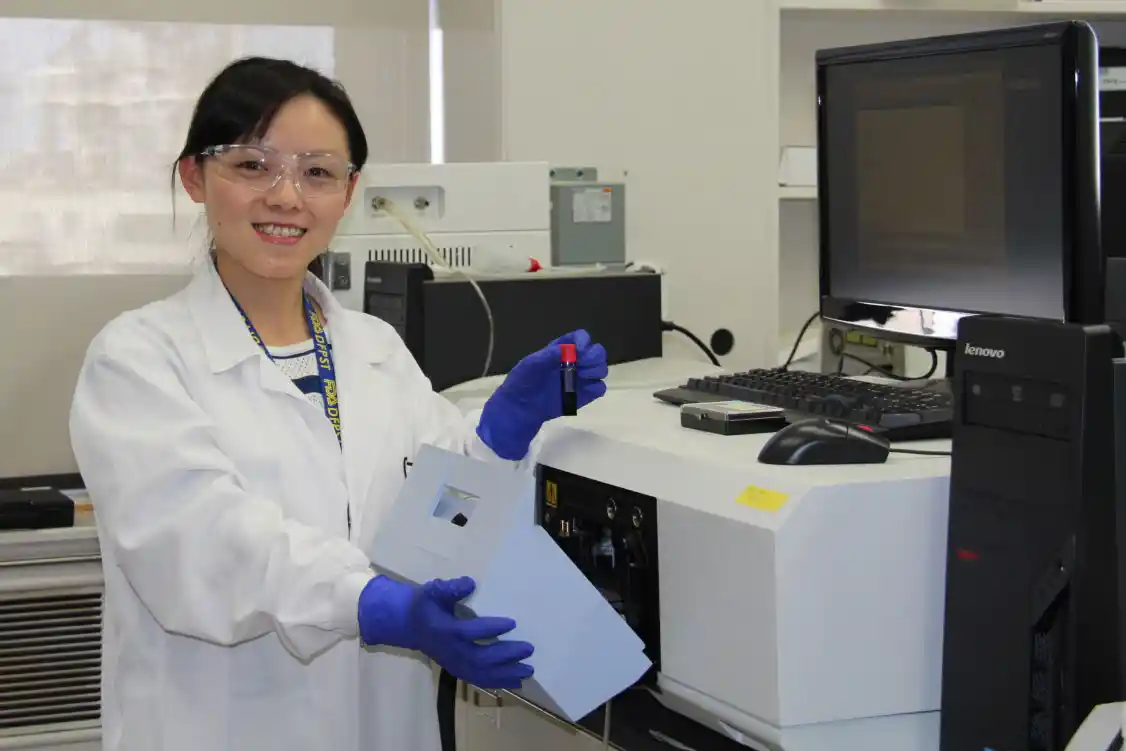Faster Food Safety
Meet Yun Wang
Yun Wang, Ph.D., had researched food safety as a student for years, but she had never been as close to real foodborne outbreak cases as when she joined the Research Participation Programs of Oak Ridge Institute for Science and Education (ORISE) at the Food and Drug Administration (FDA). Now she deals with botulinum neurotoxin—the most potent toxin known—on a daily basis.

Yun Wang, Ph.D., improves detection for the botulinum neurotoxin, the most potent toxin known.
After learning more about the causes of foodborne outbreaks and good practices in food processing, she made changes to how she prepares her own food. She is very careful about washing her hands, utensils, and countertops. She also notices food expiration dates and strictly follows refrigeration and cooking guidelines.
Wang received a doctorate in biosystems engineering from Michigan State University and was attracted to the ORISE Research Participation Programs at FDA as a means of furthering her training and research into foodborne pathogens and toxins. This opportunity has allowed her to work alongside more experienced research scientists in a government agency that protects the public health by assuring food safety, all while learning more about her field.
This program provides college students, recent graduates, and university faculty with training opportunities to participate in FDA research projects. Wang conducts food safety research at the FDA Division of Food Processing Science and Technology. Her main research involves nanoparticle-assisted sensing of foodborne toxins, while also studying the bacterial pathogens which produce the toxins through whole genome sequencing.
“Nanosized materials can provide better detection signals for bacteria, viruses and toxins than bulk materials,” Wang says. Her research will yield a “novel biosensor” that can detect multiple deadly botulinum neurotoxin serotypes far faster than the traditional mouse bioassay, which can take days.
A typical day in the lab starts with making up an experimental plan to track experiments. During breaks between experiments, Wang meets with other scientists on the team to discuss data and plan their collaborations. Later in the day, she sets up experiments and prepares samples. Once an experiment is completed, she processes the data, analyses and summarizes the results, and then plans the next day’s experiment. Also, Wang spends time every day keeping up with the scientific literature in her field.
Wang highly recommends the program to other food safety scientists.
“The program provides valuable experience by learning from and collaborating with scientists across the center, in industry, academia and government. I am encouraged and supported a lot. I love the friendly and cooperative research and learning environment here,” said Wang.
Going forward, she sees herself growing more as a researcher and leading projects to tackle food safety challenges. She hopes to obtain a faculty or research scientist position in food safety or other related areas.
“This experience allows me to grow as a researcher, not only from scientific and intellectual aspects, but also from the collaborative experience and opportunities to improve my communication skills,” said Wang.
The Oak Ridge Institute for Science and Education (ORISE) is a U.S. Department of Energy (DOE) asset that is dedicated to enabling critical scientific, research, and health initiatives of the department and its laboratory system by providing world class expertise in STEM workforce development, scientific and technical reviews, and the evaluation of radiation exposure and environmental contamination.

